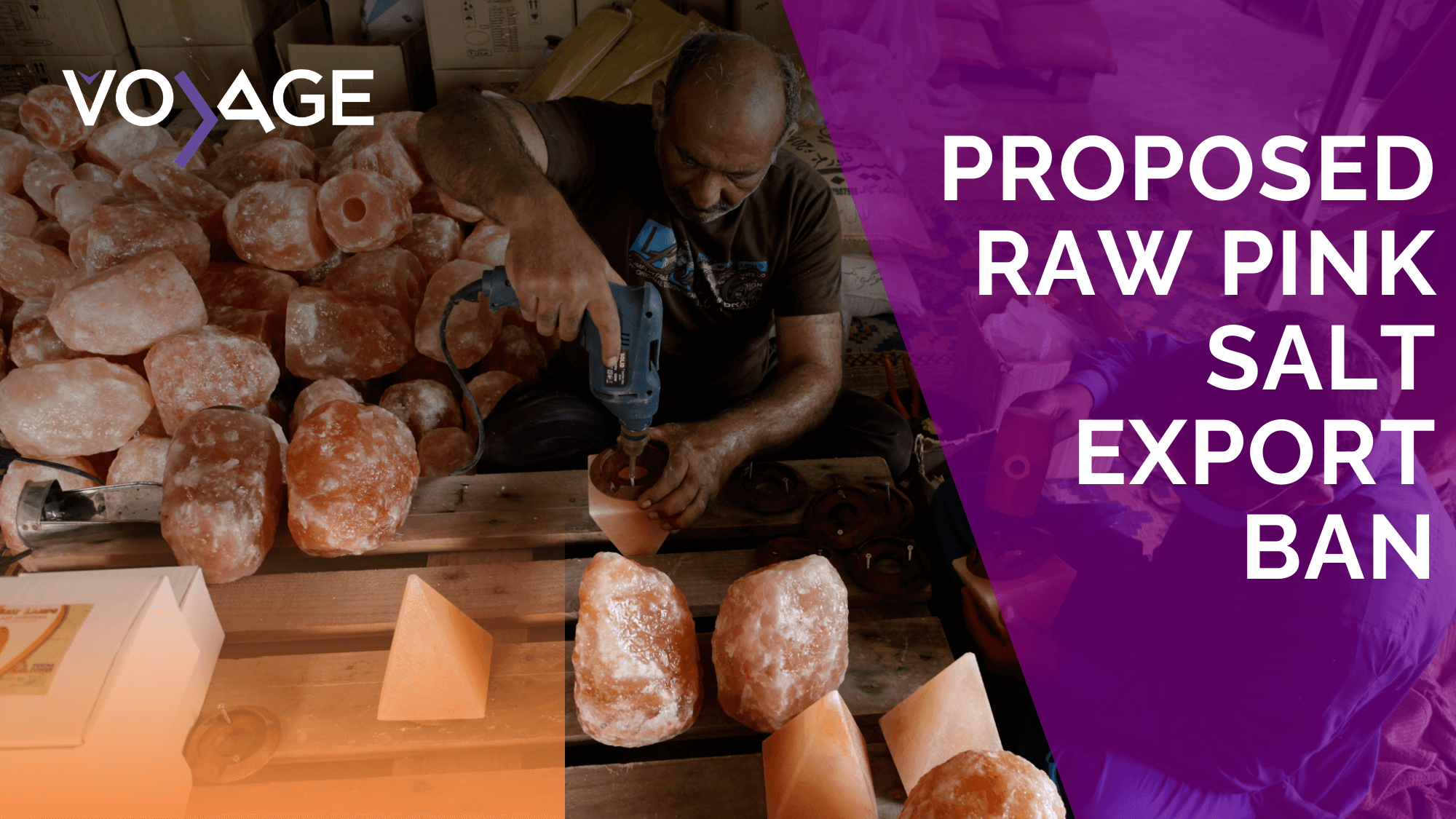
Proposed Raw Pink Salt Export Ban
Pakistan’s Himalayan pink salt, mined primarily in the historic Khewra region, is recognized worldwide for its quality and is a key export commodity. The pink salt trade has long contributed to Pakistan’s economy, particularly in its raw form, which is widely exported for culinary, cosmetic, and decorative uses. However, the government’s proposed ban on raw pink salt exports, aimed at promoting value- added products, is poised to have significant implications for Pakistan’s trade environment, particularly in the logistics and freight forwarding sectors.
The proposed ban intends to shift the focus from exporting raw salt to finished products like processed salt and crafted goods, with the goal of increasing the export value of these items. While this may potentially benefit local industries in the long run, the immediate impact on Pakistan’s trade dynamics is likely to be disruptive. Freight forwarders, who play a critical role in the seamless transportation of raw materials, could face substantial shifts in demand, with fewer raw salt shipments and more complex logistics involved in handling processed goods.
For companies like Voyage, which are deeply integrated into the logistics and freight forwarding ecosystem, this transition poses both challenges and opportunities. The decrease in raw salt exports may lead to reduced shipping volumes in the short term, disrupting established trade routes and reducing demand for transportation services that have traditionally catered to bulk raw materials. On the other hand, an increase in the export of value-added products could create opportunities for more sophisticated logistics solutions, such as managing diverse supply chains, warehousing, and specialized handling of processed goods. These changes could shift the competitive landscape in freight forwarding, requiring companies to adapt their services to cater to evolving needs.
The Salt Manufacturers Association of Pakistan (SMAP) has voiced concerns about the abrupt nature of this policy shift, particularly its potential to negatively affect trade agreements and reduce Pakistan’s competitiveness in international markets. Many small and medium-sized enterprises (SMEs), which lack the infrastructure to transition to value-added production quickly, are at risk of losing export opportunities. This could lead to a temporary dip in export volumes, directly impacting the logistics sector, which depends on consistent international trade to maintain growth.
Additionally, SMAP emphasizes that global demand for raw pink salt remains strong, and imposing such a ban without a phased transition could hurt Pakistan’s reputation in key markets. For freight forwarders, this disruption could mean a recalibration of services and the need to reestablish trade routes aligned with the export of processed products, which may require different logistical support and potentially increase costs.
In conclusion, while the government’s push toward value-added exports holds merit, careful consideration of its impact on Pakistan’s trade environment is crucial. The freight forwarding industry, a critical player in ensuring the smooth flow of goods across borders, will need to navigate this transition carefully. Collaboration between policymakers and logistics providers will be essential to ensure that any changes do not stifle Pakistan’s export potential or harm the businesses and industries that rely on global trade for their livelihood.

